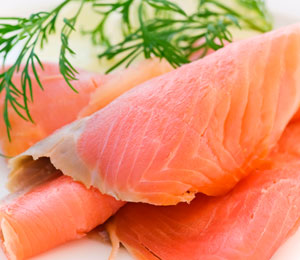 Researchers have provided some evidence suggesting a diet high in omega-3 fatty acids may be helpful for patients with migraine.
Researchers have provided some evidence suggesting a diet high in omega-3 fatty acids may be helpful for patients with migraine.
The study predicted dietary fatty acids could be manipulated to increase oxylipins with potent pain reducing properties and decrease those with pain promoting properties.
The US study, published in The BMJ, randomised 182 patients with chronic or episodic migraine to either a high omega-3 diet, high omega-3 and low omega-6 diet, or a control diet. Dietary manipulation was achieved mostly via oil and butter formulations and the protein foods provided (ie. high fat fish versus low fat fish and chicken).
Patients had a baseline mean Headache Impact Test (HIT-6) score of 62.7, an average of 16.3 headache days per month and 5.4 headache hours per day.
The study found circulating levels of 17-hydroxydocosahexaeonic acid (17-HDHA), previously linked with lower pain scores in other studies, increased significantly by week 16 in both diet groups as compared to controls (p < 0.001).
HIT-6 scores also improved in both diet groups but did not achieve statistical significance.
Headache hours per day reduced in both diet groups compared to controls (3.6 and 3.2 v 4.0 hours per day; p =0.001 and <0.001) as did moderate-severe headache hours per day (1.4 and 1.3 v 2.1; both p <0.001) and headache days per month (11.2 v 9.2 v 13.2; p= 0.003 and <0.001 respectively).
The high omega-3 diet also decreased total acute drug use (including NSAIDs, acetaminophen, triptans) compared with the control diet (p=0.01) and both diets decreased the use of NSAIDs or aspirin compared with the controls.
“The overarching hypothesis underlying this randomised trial was that increasing dietary n-3 EPA+DHA (with or without concurrent reduction in n-6 linoleic acid) would alter nociceptive oxylipins in a manner that would decrease headache frequency and severity,” the study said.
“While the biochemical results are consistent with our mechanistic model, the clinical results were mixed and require a more nuanced interpretation.”